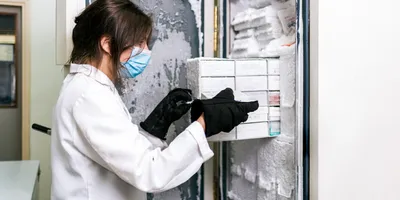For nine years, the Freezer Challenge, organized by My Green Lab (MGL) and the International Institute for Sustainable Laboratories (I2SL), has rallied labs around the world to adopt energy-efficient cold storage practices. During the 2025 competition, 3,724 labs across 36 countries participated, resulting in 31.6 million kWh of energy saved. This brings the cumulative total to a remarkable 108.1 million kWh saved since the Freezer Challenge commenced in 2017.
As the challenge has grown, so have the strategies taken by participants. Alongside everyday best practices, this year’s winners implemented operational improvements, invested in equipment upgrades, and leveraged strong support systems. These changes drove energy savings, improved efficiency, and created new momentum towards their sustainability goals. Their experiences provide a closer look at how sustainable lab operations evolve, and what it takes to maintain and scale them.
Driving sustainability through smarter systems and equipment upgrades
Building more sustainable cold storage systems often means rethinking the structures that support everyday lab work. This includes how teams are trained, how equipment is selected, and how best practices are communicated and reinforced. The winners of this year’s challenge demonstrated that when these systems evolve, freezer management becomes easier, more consistent, and far more impactful.
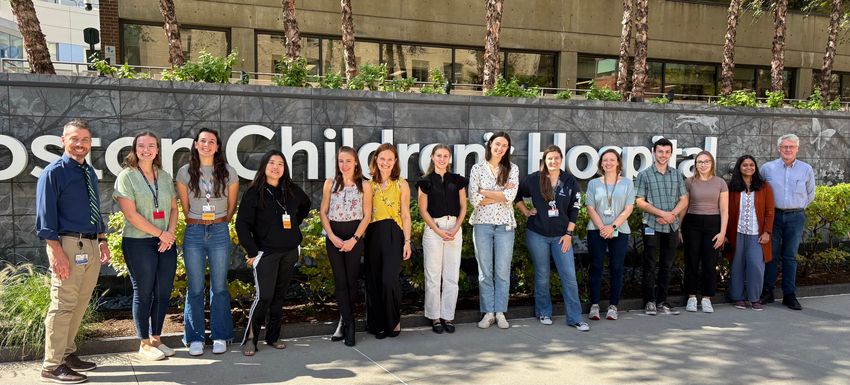
Boston Children’s Hospital, Hospital/Clinical/Other Winning Streak Award 2025. Pictured (not ordered): Hahyung Y. Kim, Evan Hsu, Angeliki Damilou, Maeve Smith, Emma Sherrill, Shannon DiMartino, Erin Johnson-Venkatesh, Vivienne Zhao, Anne Ellett, Haley Ohlson, Chuck Blanchette, and Caroline Schuster-Kubaczka.
CREDIT: BOSTON CHILDREN’S HOSPITAL
At Boston Children’s Hospital (BCH), recipient of the Hospital/Clinical/Other Winning Streak Award, education played a key role in advancing freezer sustainability. Charles Blanchette, research facilities and green labs program manager, explained that his team expanded outreach efforts through freezer maintenance training, a new “F.R.E.D. Talk” (Freezers Reducing Energy Discussion) seminar series, and regular updates delivered via digital signage and newsletters. These touchpoints helped establish best practices and a sense of shared responsibility.
Other organizations focused on modernizing their equipment. At AstraZeneca, winner of the Biotech/Pharma Organization Award, sustainability leaders took a hard look at the environmental impact of outdated units, which led them to prioritize retiring older freezers and replacing them with energy-efficient models. “These steps, supported by our internal sustainability program, helped drive involvement and reinforced our commitment to ongoing operational improvements,” shared Morgan Becher, sustainability program manager.

Mars Global Services, Hospital/Clinical/Other Organization Award 2025.
CREDIT: MARS GLOBAL SERVICES
A similar shift took place at Newcastle University in England, which won an Academic Lab Award. “The challenge changed the way we evaluate new purchases,” noted the Newcastle University team (Phil Howard, Tracey Stevenson, and Ewelina Bien). “We now consider lifecycle costs, energy ratings, and shared-use potential much more seriously than before. We ensure that more efficient models are purchased preferentially despite the higher initial spend, with the knowledge that savings will come from lower energy usage.”
At Mars Global Services, winner of the Hospital/Clinical/Other Organization Award, teams advanced sustainability through informed equipment choices and operational refinements. “Some labs integrated sustainability criteria into the selection of new equipment, ensuring that future purchases align with environmental goals. Labs already equipped with advanced technology focused on optimizing usage, including reorganizing storage, reviewing temperature settings, and shutting down underutilized equipment,” said senior scientist Christel Martinez, on behalf of all regional laboratories. These actions reinforced the idea that “sustainability goes beyond freezer management,” helping build a broader culture of continuous improvement.
How better cold storage optimizes energy efficiency and lab reliability
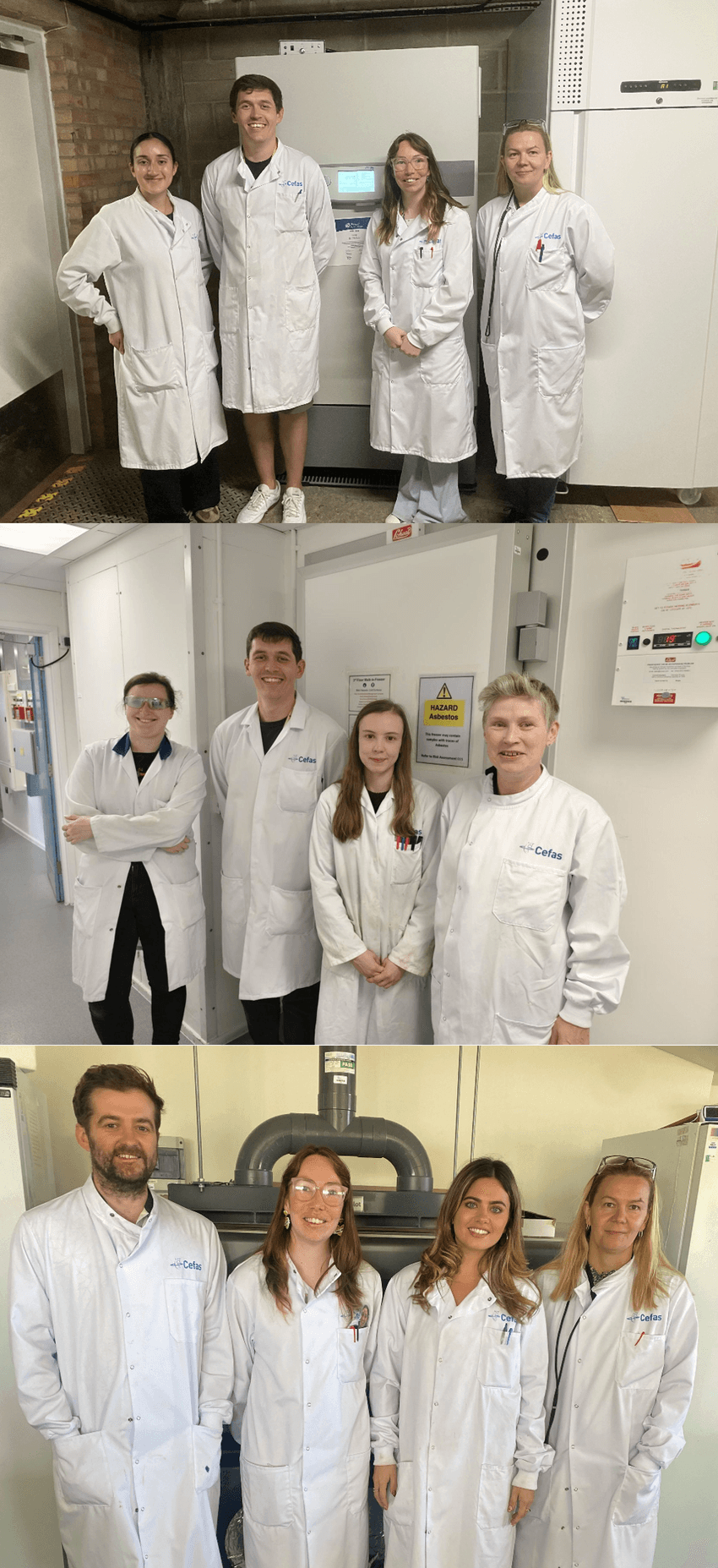
Cefas, Government Organization and Lab Awards 2025. Pictured (left to right): (Upper image) Anais Ansari, Billy Greenhill, Paula Milliken, and Joanna Uzyczak; (Middle image) Lauren Griffith, Billy Greenhill, Melissa Kirk, and Lucy Sims; (Lower image) Chris Martin, Paula Milliken, Phoebe Eddon, and Joanna Uzyczak.
CREDIT: CEFAS
Sustainable cold storage practices benefit nearly every aspect of lab operations. When freezers run efficiently, they last longer, and when sample organization improves, labs reduce the risk of sample loss and save valuable time. Combined, these gains protect budgets and strengthen both day-to-day operations and long-term sustainability.
For the team at Cefas (Centre for Environment, Fisheries, and Aquaculture Science), winner of both Government Organization and Lab Awards, the gains were numerous and far-reaching. “The reduction in energy usage, carbon footprint, and costs are all great benefits of the Freezer Challenge,” shared Paula Milliken, ecotoxicologist. But the improvement extended well beyond energy metrics. “Better-organized freezers make them significantly more user-friendly and save time looking for what you need. Also, turning up ULT freezers so they are not working at maximum capacity will increase their lifespan,” she added.
Similar operational benefits were reported at the Hospital Universitari Vall d’Hebron (HUVH) Biobank in Barcelona, Spain, which received the Academic Biorepository Award. “For us, a large benefit of the Freezer Challenge was the energy savings and improved efficiency for sample storage and retrieval,” said Isabel Novoa, biobank director.
Inventory management was another critical factor. Jenny Lönsjö, senior biobank scientist and part of AstraZeneca’s Biotech/Pharma Winning Streak Award team, emphasized that maintaining a sustainable, scientifically valuable inventory depends on active monitoring and responsible retirement of samples. This approach supports long-term sample quality while reducing unnecessary waste. For AstraZeneca, benefits were also observed at the organizational level. “Our participation in the Freezer Challenge supports AstraZeneca’s Ambition Zero Carbon strategy by helping us reduce energy use and carbon emissions across our labs. Upgrading to energy-efficient equipment and making sustainability a routine focus aligns with our broader goal to decarbonize our business and value chain,” said Becher.
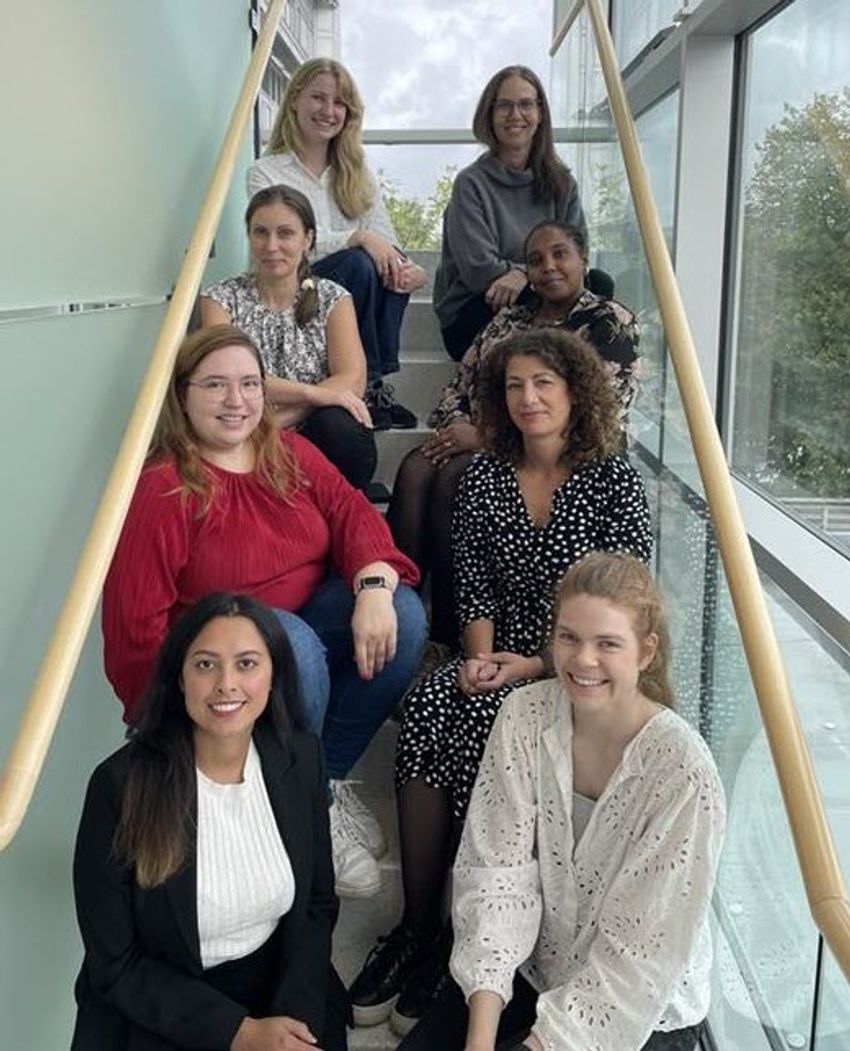
Regional HBS Centre Gothenburg Lab, AstraZeneca, Biotech/Pharma Winning Streak Award 2025. Pictured (back to front, left to right): Linnea Johansson, Ida Gidlöf, Josefin Aleke Fritzell, Israa Dafalla, Anastasia Rudenko, Gabriela Baeza, Maryam Dost, and Jenny Lönsjö.
CREDIT: REGIONAL HBS CENTRE GOTHENBURG LAB
Improvements in equipment reliability were another noteworthy outcome. The Dr. Elizabeth Jaffee GI Oncology Lab at Johns Hopkins University (JHU), which received the Academic Winning Streak Award, found that raising freezer setpoints from -80 °C to -70 °C helped extend the lifespan of critical research infrastructure. “We see far less equipment failure,” explained James Leatherman, research associate. “It was not uncommon to need to rebuild or replace a unit every year. We now seem to be on track for two to three years before a unit goes down. With multiple units and hundreds of thousands of samples, this is something to celebrate.”
These operational improvements strengthen the case for continued investment in sustainability across institutions. At BCH, ongoing cold storage initiatives directly contributed to carbon reduction and cost-savings goals. “This year, over 50 labs participated, helping us save thousands of kilowatt-hours and reduce greenhouse gas emissions while improving freezer reliability,” shared Blanchette. “Seeing our data translate into real energy savings and national recognition has also motivated us to expand our other sustainability initiatives.”
Beyond energy use, emissions, and costs, there can also be cultural impacts. The Freezer Challenge helps institutions, such as Newcastle University, embed sustainability into their day-to-day operations. “People are proactive about reporting faults, sharing storage space, and thinking about sustainability as part of good laboratory practice,” noted the Newcastle University team. These habits extended beyond cold storage, influencing broader efforts like reducing paper use and digitizing documentation.
As Bertrand Accart, lab manager at the Centre Hospitalier Universitaire (CHU) de Lille and winner of a Hospital/Clinical/Other Lab Award, summarized, “The benefits are multiple and diverse.” For his team, improved organization and efficiency marked “a virtuous circle” where financial value, environmental progress, and team engagement reinforced one another, which created momentum that continues well beyond the challenge.
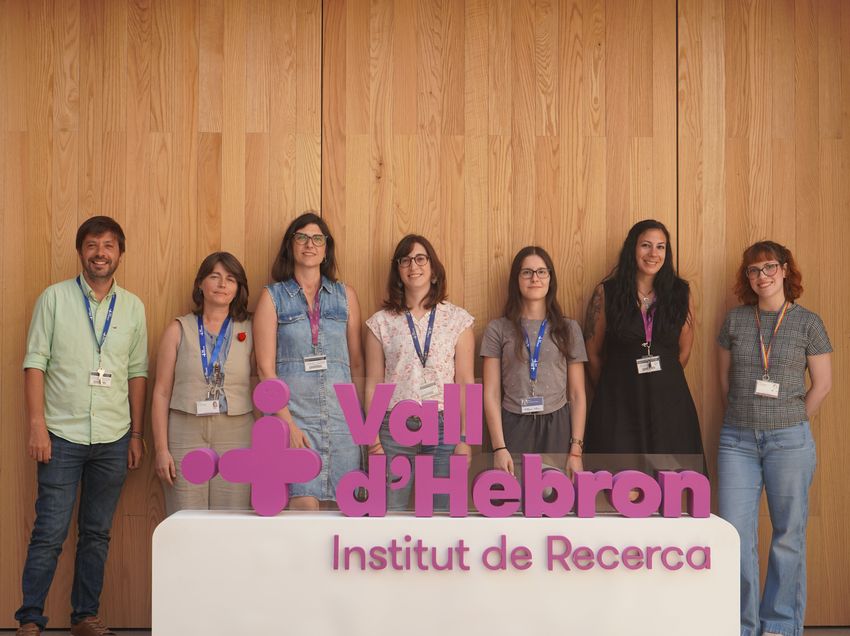
HUVH Biobank and Coordination Laboratory, Academic Biorepository Award 2025. Pictured (left to right): Isaac Rodriguez, Isabel Novoa, Fátima Jimenez, Helena Ramal, Nerea Fernández, Sheyla Pascual, and Ana Jimenez.
CREDIT: HUVH BIOBANK AND COORDINATION LABORATORY
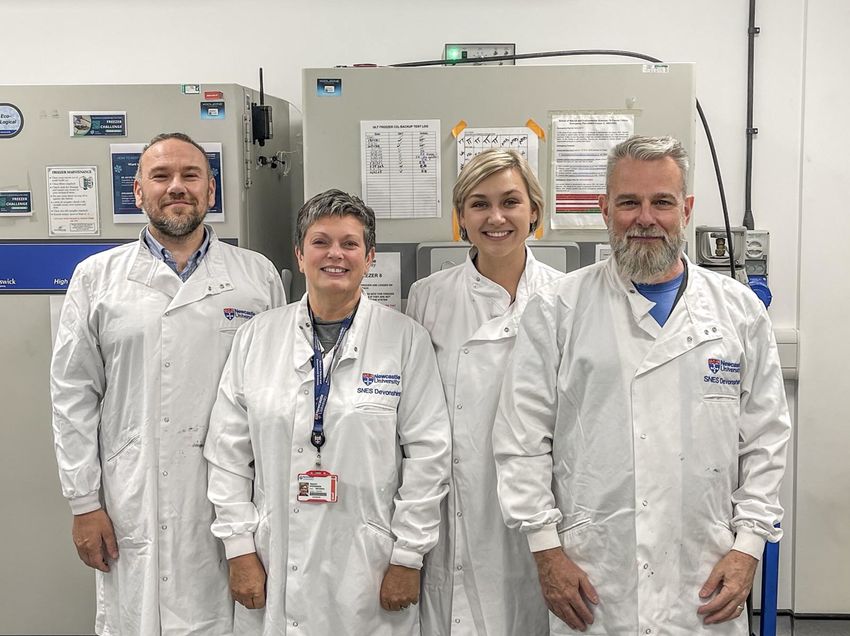
Devonshire Lab, Newcastle University, Academic Lab Award 2025. Pictured (left to right): Phil Howard, Tracey Stevenson, Ewelina Bien, and Darroch Hall.
CREDIT: DEVONSHIRE LAB
Scaling success through leadership and collaboration
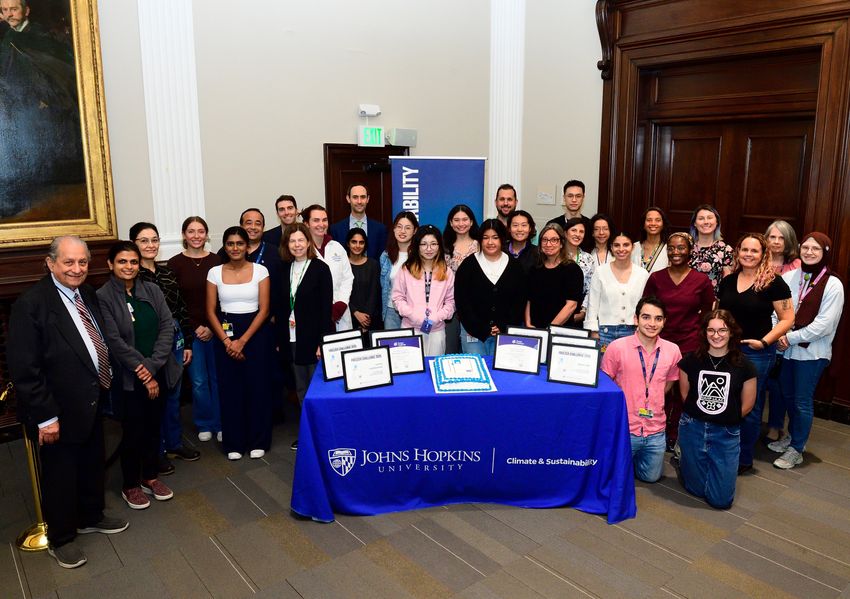
Johns Hopkins University, Academic Organization, Winning Streak, and Lab Awards 2025.
CREDIT: JOHNS HOPKINS UNIVERSITY
Sustainability gains are far more durable when responsibility is shared. Leadership endorsement, recognition systems, and collaborative frameworks can accelerate adoption, reduce hesitation around change, and encourage teams to contribute actively. When organizations signal that sustainability is a shared priority, labs gain the confidence to innovate and make progress toward their goals.
At JHU, leadership involvement helped transform sustainability from aspiration to action. “From our start in 2021, the VPs in facilities have provided monetary awards for the top-performing labs, which has been a major factor in increasing participation,” shared Ryan Weeks-Rutan, senior sustainability specialist and part of the team behind JHU’s Academic Organization Award.
Based on feedback, the university expanded its support this year by inviting every lab lead to an awards luncheon that recognized efforts in various categories, such as “most freezers defrosted” and “most scorecards completed by a single lab manager.” “Our inaugural awards luncheon was a fantastic way to show appreciation for all the effort and will become an annual celebration here at JHU,” Weeks-Rutan added.
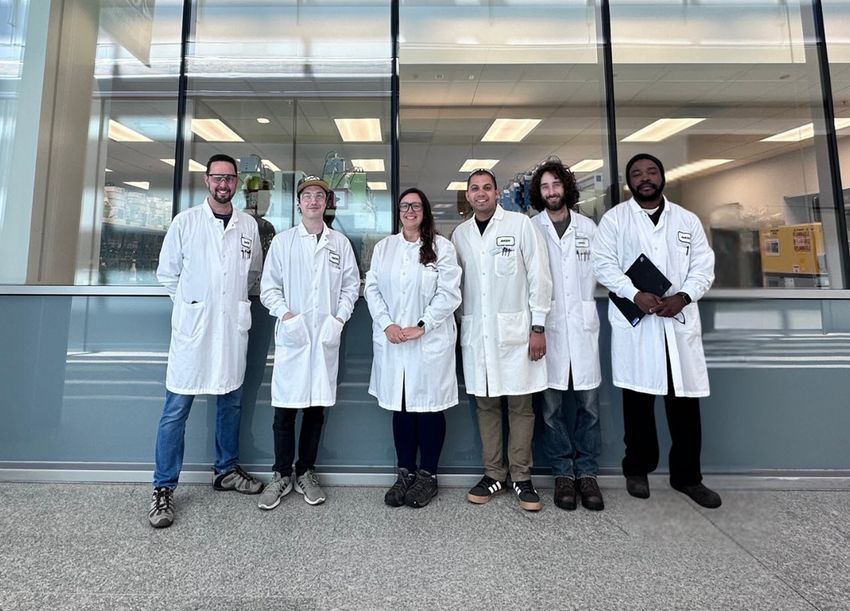
Amgen, ARI Process Development Lab, Biotech/Pharma Lab Award 2025. Pictured (left to right): George Boras, Jeffrey Schmidt, Ioanna Rawlinson, Bishouy Sharoubim, Frank Almonte, and Georges Obame.
CREDIT: AMGEN
Leadership saw the impact as well. “The Freezer Challenge has become an important way to advance sustainability across our research community,” said Bob McLean, vice president of facilities at JHU. “I’ve seen how leadership support makes a real difference—not only in recognizing the grassroots efforts that drive the program’s success, but also in helping us expand our focus on green labs and strengthening sustainable practices across the university.”
Support also played a decisive role in giving teams the confidence to make meaningful changes. In the Discovery Science Cambridge Lab at Novartis, which won a Biotech/Pharma Lab Award, executive backing helped remove barriers and align efforts across the organization. “Leadership backing enabled us to implement the Chill Up program and establish campus-wide temperature standards,” shared the Novartis team (Jill Nunez, Stephanie Fitzgerald, Jill Neblett, Jennifer Schwartz, and Joseph Twomey). Leadership also prioritized equipment lifecycle management, ensuring the cold storage fleet was modern, efficient, and appropriately sized.
A similar dynamic shaped progress in the ARI Process Development Lab at Amgen, which also earned a Biotech/Pharma Lab Award. “We received a tremendous amount of encouragement from our leadership team, who continually emphasized the environmental and cost-saving benefits of this program,” said Ioanna Rawlinson, process development associate scientist. Leadership’s enthusiasm, she added, “really helped create a positive and supportive environment.”
At CHU de Lille, support extended beyond leadership. Staff partnered with support services, stakeholders, and even external organizations to advance their cold storage goals. As Accart put it, “Alone we go faster, together we go further.”
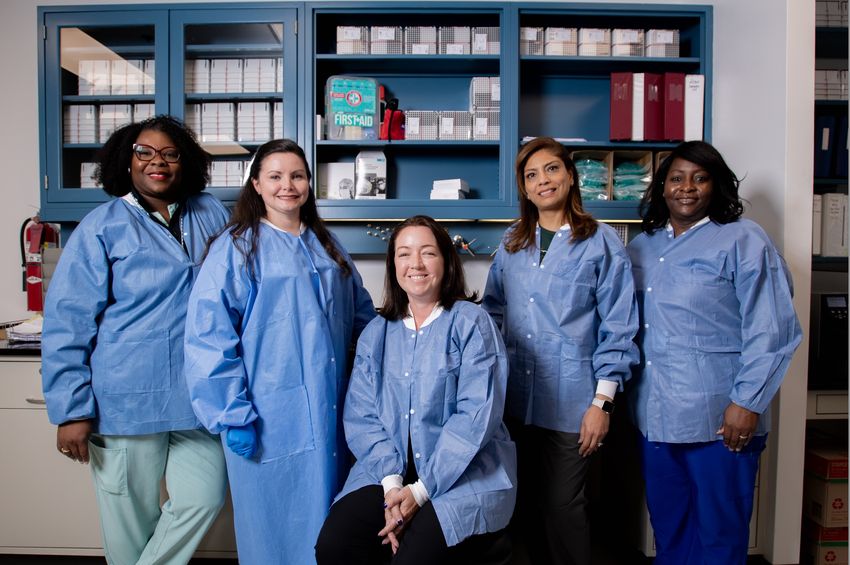
Subramaniam Lab, University of Alabama at Birmingham, Academic Lab Award 2025. Pictured (left to right): Zennetta Moultrie, Carly Sorrelle, Sarah Patterson, Noureen Ali, and Whitney Eaton.
CREDIT: SUBRAMANIAM LAB
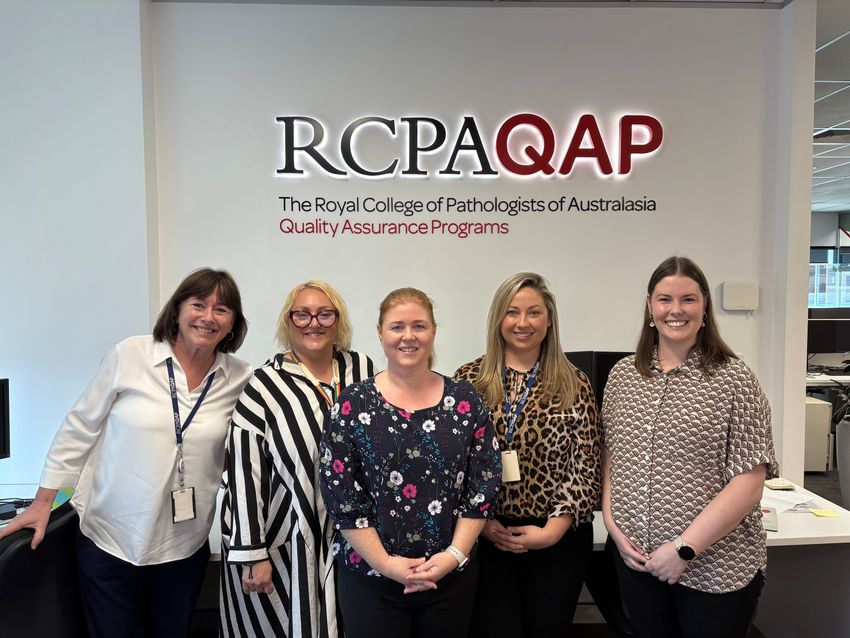
Royal College of Pathologists of Australasia Quality Assurance Programs, Hospital/Clinical/Other Lab Award 2025. Pictured (left to right): Katherine Ryan, Tracey Dibbens, Allison Terrell, Zoe Vayanos, and Alexa Kaufer. Not pictured: Tony Badrick, Jenny Ross, Michelle Keays, Anthony Green, Rhys Judd, Sam Shepher, Russel Skilleter.
CREDIT: ROYAL COLLEGE OF PATHOLOGISTS OF AUSTRALASIA QUALITY ASSURANCE PROGRAMS
Advancing sustainable science beyond the lab
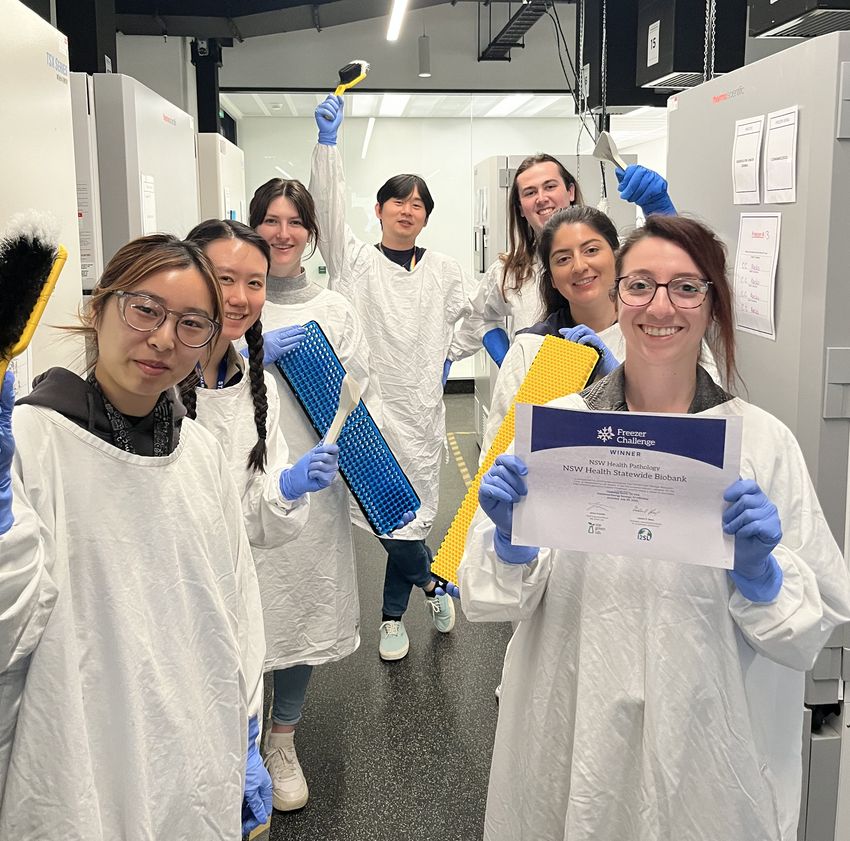
Statewide Biobank, New South Wales Health Pathology, Government Biorepository Award 2025. Pictured (back to front): (Left side) Dennis Tao, Alana McGrath, Jessica Dai, Yingshi Li; (Right side) Luke Bonser, Maria Villalva, Beth Caruana.
CREDIT: STATEWIDE BIOBANK
The stories shared by this year’s winners highlight how sustainable cold storage practices gain momentum, from upgraded equipment and refined strategies to stronger engagement across teams. Across these examples, one pattern stands out: when organizations actively support this work, the impact multiplies.
With institutional backing and continued participation in initiatives like the Freezer Challenge, labs can accelerate energy-efficiency gains, reduce carbon emissions, and build a culture of sustainability that extends well beyond the freezer.
Ready to join the Freezer Challenge? Sign up here to be the first to know when the 2026 competition launches!
The Freezer Challenge is a joint program run by My Green Lab and the International Institute for Sustainable Laboratories (I2SL) and is made possible through the generosity of our industry sponsors. Our sponsors for the 2025 competition are Amgen, Bristol Myers Squibb, Gilead, PHCbi, Sanofi, Stirling Ultracold, Thermo Fisher Scientific, and Eppendorf.

